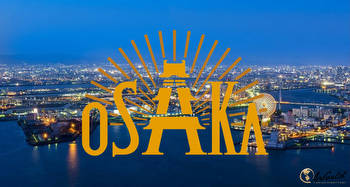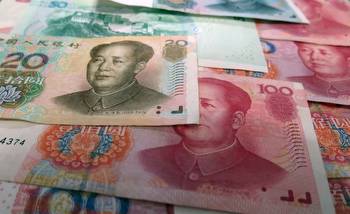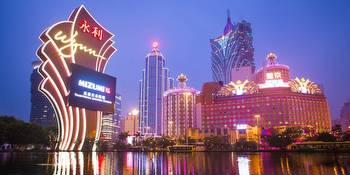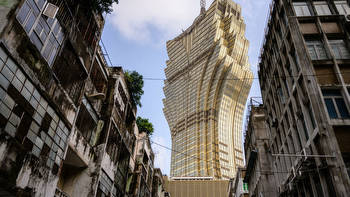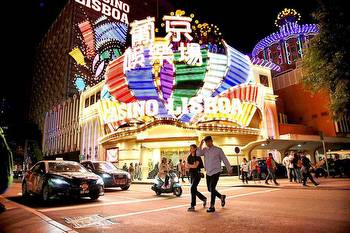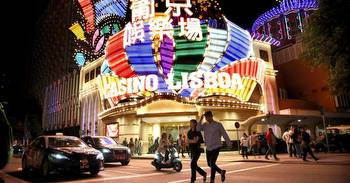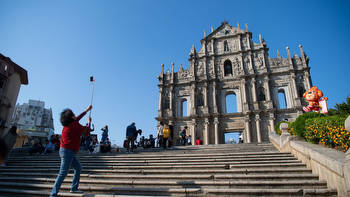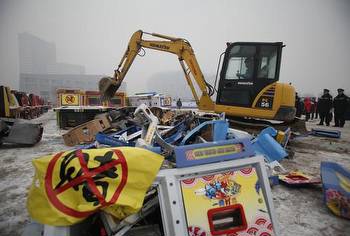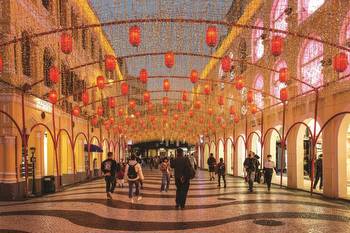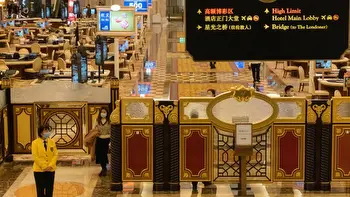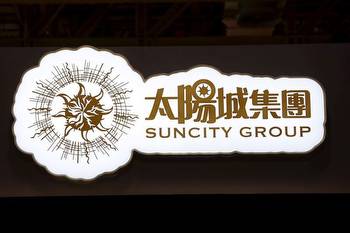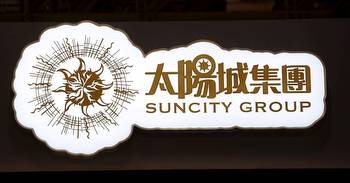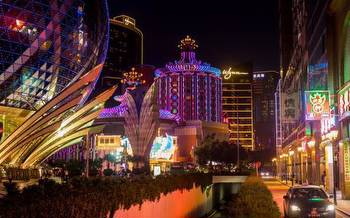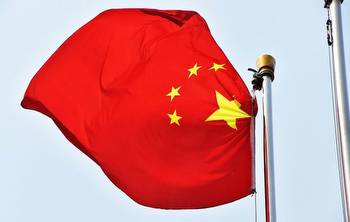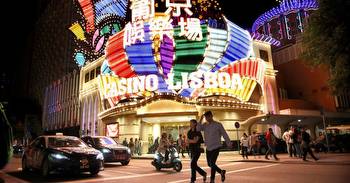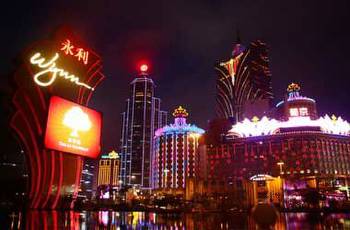Macau’s Challenges: From Better Management of Casinos within Casinos to “Suitable” Economic Diversification

The recent closure of some VIP rooms and the emphasis on Macau-Hengqin cooperation can be analytically put together as a whole package of governing issues with implications for Macau: namely the effective transition from a much better and tighter management of some “casinos” within casino franchises to the formulation and implementation of “suitable” economic diversification. During this difficult transition, the Macau government and its society must manage a multiplicity of issues, ranging from a more comprehensive and much deeper policy planning to an extensive survey of different economic sectors so that sufficient statistical data will be available for a more “scientific” policy making for the Macau Special Administrative Region (MSAR).
First and foremost, the problems emanating from the gaming promoters, which have possessed VIP rooms under Macau’s casino concessionaries, have already exposed the baffling problem of Macau witnessing “casinos” exist within casino franchises. Most significantly, a few of these “casinos” within casinos have outgrown themselves, allegedly extending their marketing and gaming businesses not only into the mainland but also to the overseas, where mainland gamblers were lured into the gaming activities, which however are seen as illegal in accordance with the mainland’s criminal law. Some Macau-based gaming promoters appeared to lack the political sensitivity that gambling is constantly regarded as a crime in mainland China, where its ruling authorities have since January 2021 cracked down on cross-border gambling, including Internet gambling. Macau’s casino capitalists, including those operating VIP rooms and casino concessionaries, must be highly sensitive to not only the mainland’s criminal law but also the economic securitization of Macau’s gambling sector. Specifically, gambling in the MSAR often entails the risk of endangering the economic national security of the central government, especially if gamblers are from the mainland and if they may engage in massive gambling with the implications of cross-border money laundering and siphoning off the mainland’s financial coffers.
To plug the loophole of having many “casinos” within casinos, the Macau government must work with the private-sector casino concessionaries to review the complex triangular contractual relationships between the gaming promoters, casino concessionaries and the government. The contractual relations between the government and the casino concessionaries can perhaps be managed more easily and effectively by the Macau public administration itself. However, the contractual relationships between casino concessionaries and gaming promoters coping with the VIP rooms appear to be more complex, as the Court of Final Appeal’s decision on the Dore Entertainment case showed.
In the past, casino concessionaries saw VIP rooms as being attractive to big rollers, utilizing the gaming promoters as marketing agencies to boost their market and profits. However, the unintended consequences were that gaming promoters could overgrow in such a proportion that their “empire” could be regarded by the mainland law-enforcement authorities as running the risk of violating the mainland law and regulations. As such, it is urgent for the elites of the Macau casino sector to understand the content of the mainland law and regulations regularly, to critically reflect on whether its gaming promotion might grow out of its proportion, and to reinforce the political sensitivity that gambling remains a crime in the mainland.
Article 303 of China’s Criminal Law says: “Whoever, for the purpose of reaping profits, assembles a crowd to engage in gambling, opens a gambling house, or makes an occupation of gambling is to be sentenced to not more than three years of fixed-term imprisonment, criminal detention, or control, in addition to fine.” Above all, an amendment made in December 2020 of Article might have been ignored by many casino capitalists, managers, and promoters in Macau. Specifically, the amendment is as follows: “Using profits as the motive, those who gather people to gamble or rely on gambling as their profession can be imprisoned for 3 years or below, arrested, controlled or fined. Those who open gambling houses can be imprisoned for 5 years or less, arrested, controlled, or fined. For serious cases, those who are involved can be imprisoned for five years above or ten years below, in addition to the fine.”
It was unclear whether the amendment to the mainland Chinese Criminal Law was made known to all the elites in the Macau casino sector. Ideally, Macau’s casino concessionaries and their related gaming promoters should conduct intensive research on how the mainland government has been updating, amending, and implementing its criminal law relating to gambling.
Another very important notice issued by the mainland’s Ministry of Public Security (MPS) on February 5, 2021, might be neglected by the Macau casino sector. The notice said that some “syndicates outside the territory [of China] attracted gambling and absorbed money for a long period of time (公安部新闻发布会通报两高一部印发敦促跨境赌博犯罪嫌疑人投案自首的通告等情况(nia.gov.cn), February 6, 2021).”
The MPS cooperated with various department to combat cross-border gambling, coming up with a six-point notice. The notice firstly “targets those suspected criminals opening casinos and those who are involved;” secondly “appeals to these people to surrender themselves voluntarily” with the possibility of reducing their sentences; thirdly “designates the methods of surrendering themselves” through letters, phone calls, telegrams and emails; fourthly “reduces the sentences of those who surrender themselves and who make contributions to the situation and policy by exposing others’ illegal acts and providing important clues for the crackdown of cases;” fifthly “empowers the judicial branch to penalizes severely those who do not surrender themselves within a specified period;” and sixthly “encourages individuals and organizations involved to report on those who are at large or who intimidate or retaliate against those becoming whistleblowers (Ibid).” Once this notice was officially published, many mainland cities publicized it, implying that different cities perhaps had citizens and officials who might be involved in cross-border gambling activities.
On November 29, the Supreme People’s Procuratorate made an important revelation that, from January to September 2021, the procuratorate agencies in the mainland prosecuted 13,300 people, including those who were involved in criminal cases in Hong Kong and Macau, and embracing 1,376 people who opened gambling houses. Moreover, the “new” style of opening casino gambling was “deceptive and hidden (最高人民檢察院:新型開設賭場犯罪集團化特徵明顯危害嚴重(yahoo.com), November 29, 2021).” Clearly, the mainland government has seen cross-border gambling as a serious criminal offence.
Yet, the crisis of governing “casinos” within casinos can be turned into a golden opportunity for Macau to develop “suitable” economic diversification. According to the plan of cooperation between Macau and Hengqin published in early September 2021, the designation of four areas of economic diversification – technological innovation and high-ended manufacturing sector; the development of Chinese medicine; the expansion of cultural tourism, convention, exhibition and trade sectors; the development of modern financial and monetary sector; and the development of big health – will require very detailed planning and policy formulation. So far, it remains to be seen how the Macau government will come up with concrete plans and policy formulation on each of these areas.
The call for economic diversification in Macau began in July 2008, when the former Chinese Vice President Xi Jinping visited the MSAR; nevertheless, little was done until September 2021 when the central government published the Macau-Hengqin cooperation plan in a top-down manner. Progressively speaking, the Macau government should establish several committees to coopt the industrial, economic and societal elites in different occupation sectors to figure out (1) the manpower needed to boost the four areas of development; (2) the number of local and mainland talents who may be needed; and (3) the timetable for the MSAR to implement “a suitable degree of economic diversification.” Otherwise, if Macau’s gambling sector is encountering the prospects of a shrinking market partly due to Covid-19 and partly due to the complexities in managing “casinos” within casinos, the current crisis cannot be seized as an opportunity to redevelop, re-energize and re-invigorate Macau’s economy.
Statistically speaking, the recent document on Macau’s talent development has lacked concrete statistical figures in many areas: (1) the number and proportion of mainland graduates from Macau’s local universities who are staying and working in Macau’s varying economic sectors; (2) the number and types of graduates from Macau’s universities who will be required to fill in the four key areas of economic diversification in the coming five to ten years; (3) market analyses and manpower projections of the appropriate number of talents needed for the development of the four areas of economic diversification; and (4) the key private-sector organizations, including from Macau and the mainland, that will play a key role in the advancement in each of the four sectors.
Much better planning, more intensive consultation with the stakeholders, and the establishment of task forces or committees concerned will be urgent and necessary to help Macau engineer a transition from its traditional dependence on casino capitalism to the process of “suitable economic diversification.” Statistical date must be collected through proper sources, including census, surveys, annual reports of local universities, and targeted surveys of different occupational sectors through the assistance of economic interest groups. However, so far it seems that the Macau government is preoccupied with the issue of managing Covid-19 and its border opening with the mainland and later Hong Kong.
In conclusion, if the crisis of managing “casinos” within casino concessionaries can be turned into a golden opportunity of galvanizing the strengths and potentials of Macau, its “suitable economic diversification” will likely achieve a significant breakthrough, thereby minimizing its traditional overdependence on casino capitalism and developing a more healthy and balanced economic development. This potential breakthrough depends much on the urgent and systematic collection of survey data, the extensive consultation of various stakeholders in the society and economy, the establishment of committees necessary to propel the development of the four areas of economic diversification, a much better strategic planning on the import of mainland talents, and above all, a more organized way of coordinating and communicating with local universities on how to train the types of local talents required to bring Macau to the next phase of economic take-off away from its overdependence on casino capitalism. Political will and vision as well as much better policy formulation and implementation are imperative in Macau.








